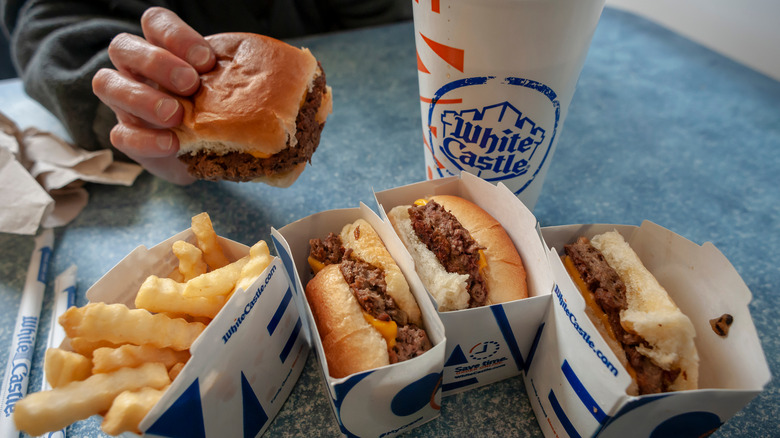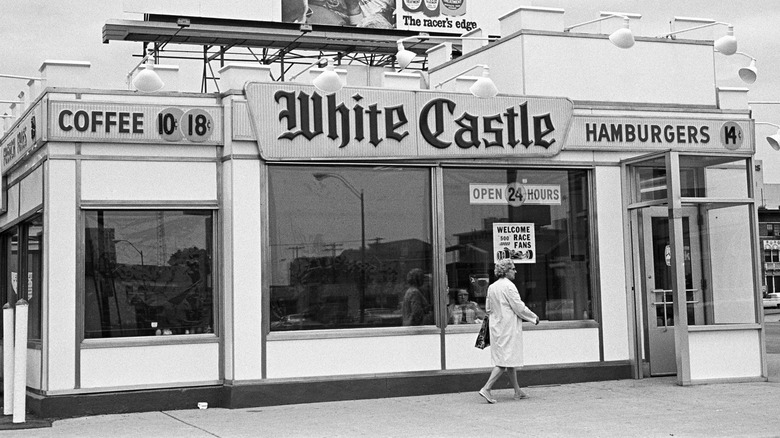The Absurd Study White Castle Once Conducted
The 2004 film "Super Size Me," in which a filmmaker eats nothing but McDonald's for an entire month, solidified a link between fast food and health problems and even helped lead to the disappearance of McDonald's supersized menu altogether. But nearly 70 years earlier, an even crazier experiment was conducted by White Castle, considered the world's first fast-food hamburger chain, per the eatery's website, in an attempt to prove that eating exclusively burgers was a healthy option.
Founded in 1921, White Castle faced a significant obstacle that's virtually unimaginable today: Customers were scared of hamburgers. Following scandalous reports of conditions at meatpacking plants in the early 20th century, diners viewed ground beef products such as burgers as not just unhealthy but potentially unsafe, per Consumerist. In the words of 1930s consumer advocate Arthur Kallet, hamburgers were viewed as being "about as safe as getting your meat out of a garbage can standing in the hot sun," (via Google Books). So in the 1930s, the restaurant's founder, Billy Ingram, hired a biochemist named Jesse McClendon, a researcher in the University of Minnesota's physiological chemistry department, to conduct a truly absurd study to clear the reputation of White Castle's sliders.
How a 1930s study "proved" sliders were healthy
To test just how nutritious White Castle hamburgers could be, Professor McClendon recruited a medical student named Bernard Flesche to eat and drink nothing but White Castle hamburgers — bun, onions, pickles, and all — and water for 13 weeks, per MinnPost. During the study, Flesche seemed to fare just fine. MinnPost reports that White Castle founder Ingram claimed that Flesche "maintained good health throughout the three-month period and was eating 20 to 24 hamburgers a day during the last few weeks." Ingram viewed the study as a success and plastered White Castle ads with claims of the burgers' health value, even touting that they contained "energy building vitamins" and should be bought "by the sack" (via White Castle History).
Flesche, however, might not have fully agreed. His daughter noted that "he started out very enthusiastic about eating 10 burgers at a sitting, but a couple of weeks into it, he was losing his enthusiasm." He did ultimately finish medical school and became a doctor, before passing away from heart issues at age 54 — and, per his daughter, he never willingly ate a hamburger again (via MinnPost).
Since this experiment, White Castle's menu has grown to include fish, breakfast, Impossible Burger veggie sliders, and more. And while we don't recommend trying the 13-week hamburger regimen yourself, according to a dietitian, the most nutritious White Castle burger isn't any of the chain's new plant-based options: It remains their original slider.

